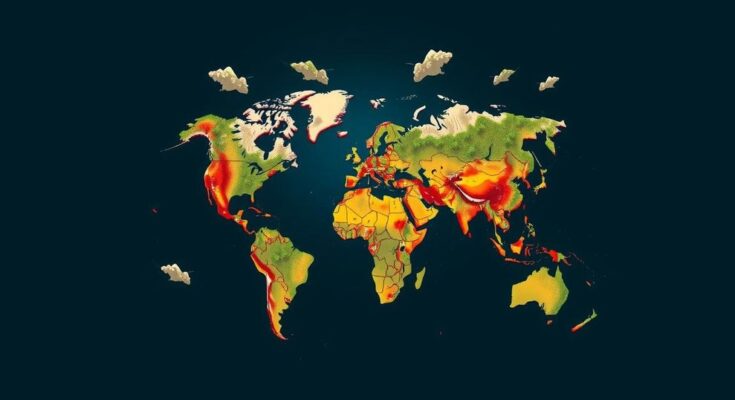UNICEF warns that by 2050, children will face significantly heightened climate threats, including eight times more extreme heatwaves and three times more flooding. The report underscores that regions such as South Asia and parts of Africa will be hardest hit. It emphasizes the urgent need for global leaders to take decisive action to protect children’s futures in light of escalating climate impacts.
According to a recent report by UNICEF, the adverse effects of climate change on children are projected to intensify significantly by the year 2050. This report highlights that under current conditions, eight times more children will face extreme heatwaves, three times more will experience flooding, and nearly double the number of children will encounter wildfires compared to the early 2000s. The regions anticipated to experience the most severe impacts include South Asia, the Pacific, the Middle East, and parts of Africa, particularly north, west, and central Africa. The report underscores the escalating threats posed by extreme weather and pollution, which jeopardize not only children’s health and education but also their mental well-being.
UNICEF Executive Director Catherine Russell emphasized the urgency for action, noting that, “The decisions world leaders make today – or fail to make – define the world children will inherit … Decades of progress, particularly for girls, are under threat.” This statement accentuates the long-term consequences of present inaction regarding climate change. The findings indicate a critical need for global leadership to mitigate risks associated with climate-related disasters, especially as approximately 1 billion children globally live in nations facing high environmental risks.
The report serves as a clarion call for immediate measures to address climate change. Without significant interventions to reduce emissions and safeguard vulnerable populations, future generations are likely to endure deeper inequities and harsh environmental conditions. The health, safety, and educational opportunities of children around the world reside on the decisions made today, emphasizing the necessity for urgent global action to secure a sustainable future.
Climate change poses a daunting challenge, particularly for children who are more susceptible to its detrimental effects. Reports indicate that these vulnerabilities manifest in higher risks of disease, malnutrition, and mental health issues. Furthermore, a significant portion of the global child population resides in regions highly susceptible to environmental disasters, substantially increasing their vulnerability. As the impacts of climate change grow, the urgency for comprehensive climate action continues to escalate.
In conclusion, UNICEF’s report paints a concerning picture of the future risks children will face due to climate change by 2050, highlighting the need for immediate global action. With projections indicating vast increases in extreme weather events and environmental disasters, the protection of children’s health, education, and mental well-being hangs in the balance. The call to action is clear: global leaders must implement policies that effectively combat climate change to secure a sustainable future for the coming generations.
Original Source: www.dailyclimate.org




